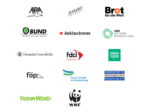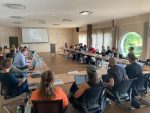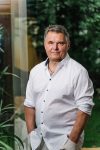The newly appointed Bioeconomy Council is to support the German government with expertise in the phase-out of the fossil economy. The success of this change also depends on the Council’s commitment to a socio-ecological transformation.
All good things come in threes. To what extent this proverb applies to the Bioeconomy Council, which is now being launched in its third edition, remains to be seen. In December 2020, the Federal Government appointed the council for three years, composed of a total of twenty scientists and associations representatives.
New this time is that the ministries for the environment and development cooperation, among others, were actively involved in the appointment of the council members. Accordingly, the round of experts is now more diverse, recruited from the biotech lobby all the way to the environmental movement. In contrast to the past, this is a clear step forward: until now, the Council was the domain of more technology-friendly departments and therefore not a haven for ecological and justice issues.
In this respect, it is hardly surprising how biased the previous committee – the Bioeconomy Council II – was in answering central questions regarding the future: Reservations about genetic engineering? Based primarily on emotions and less on facts! How to guarantee the wood supply? Through the use of non-native pine trees and pest control in the forest! Insufficient domestic biomass? “Natural resource partnerships” with South America can help!
But now the cards have been reshuffled and the Bioeconomy Council has been expanded to include members for whom planetary boundaries and the perspective of the global South are central. This is urgently needed, because the council’s main task is to put the bioeconomy strategy presented by the German government last year into political practice.
An implementation plan is needed. This is not an easy undertaking because the bioeconomy strategy is pretty much the exact opposite – a very cloudy, ambiguous document that ultimately aims to please everyone. The strategy praises organic and industrial agriculture alike and avoids the thorny issues: The word genetic engineering is not mentioned once in the fifty pages.
The million dollar question for the new council is therefore: Starting from such a diffuse situation, how do you generate a clear political direction for a bioeconomy that is ecologically sustainable and socially just ? As is almost always the case, the devil is in the details. Agreeing on a sustainable and responsible future at the meta-level is an easy exercise, but effectively constraining industrial agriculture for more biodiversity protection is all the more difficult.
In order for the economy of the future to be socially just and ecologically sustainable, concepts beyond the logic of industrial market and exploitation are indispensable. Only time will tell, to what extent the Bioeconomy Council can develop the necessary strength to shape the future within planetary boundaries.
The following persons were appointed to the council:
Regina Birner , Professor of Social and Institutional Change, University of Hohenheim
Michael Böcher , Professor of Political Science, University of Magdeburg
Viola Bronsema , Dr., BIO Germany e. V.
Thomas Brück , Professor of Synthetic Biotechnology, TU Munich
Jürgen Eck , Dr., bio.IMPACT & SymbioPharm GmbH
Peter Feindt , Professor in the Agricultural and Food Policy Department, Humboldt University
Maja Göpel , Professor, THE NEW INSTITUTE Foundation gGmbH
Ulrike Grote , Professor at the Institute for Environmental Economics and World Trade, University of Hanover
Stefanie Heiden , Professor at the Institute for Innovation Research, University of Hanover
Ralf Kindervater, Professor, BIOPRO Baden-Württemberg GmbH
Thomas Lemke , Professor of Sociology, University of Frankfurt
Iris Lewandowski , Professor for renewable resources in the bioeconomy, University of Hohenheim
Felix Prinz zu Löwenstein , Dr., Association of the Organic Food Industry (BÖLW)
Kai Niebert , Professor, Deutscher Naturschutzring (DNR) (umbrella organization of German associations active in nature conservation and environmental protection)
Monika Pischetsrieder , Professor of Food Chemistry, Erlangen-Nuremberg University
Klaus Richter , Professor of Wood Science, Technical University of Munich
Imme Scholz , Professor, German Development Institute (DIE)
Beatrix Tappeser , Dr., State Secretary a. D.
Daniela Thrän , Professor at the German Biomass Research Center
Markus Wolperdinger , Dr., Fraunhofer Institute for Interfacial Engineering and Bioprocess Engineering







